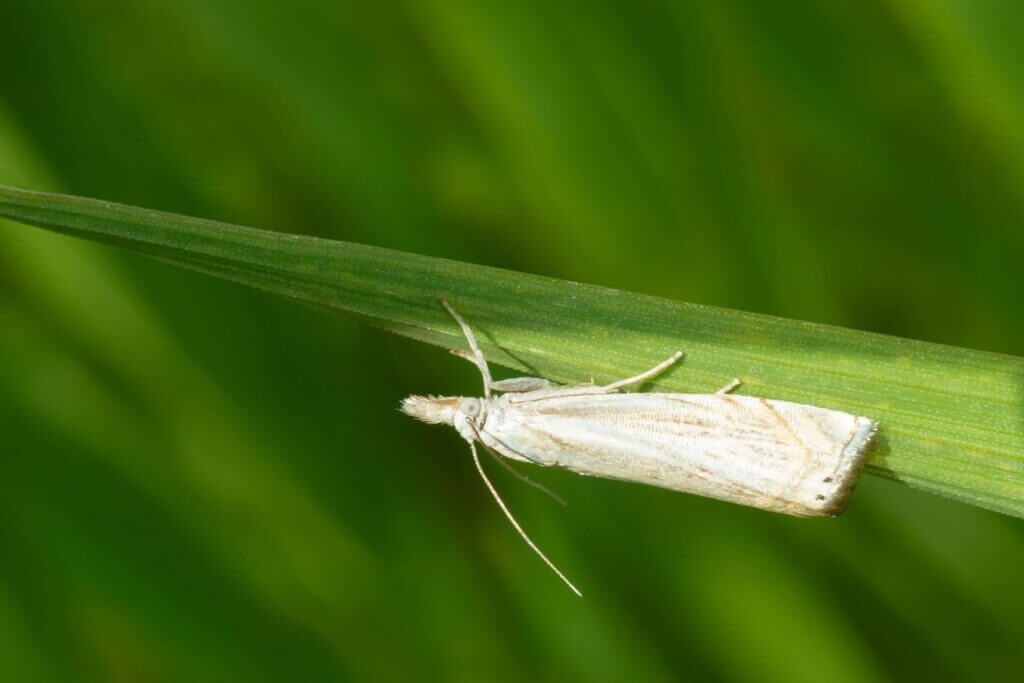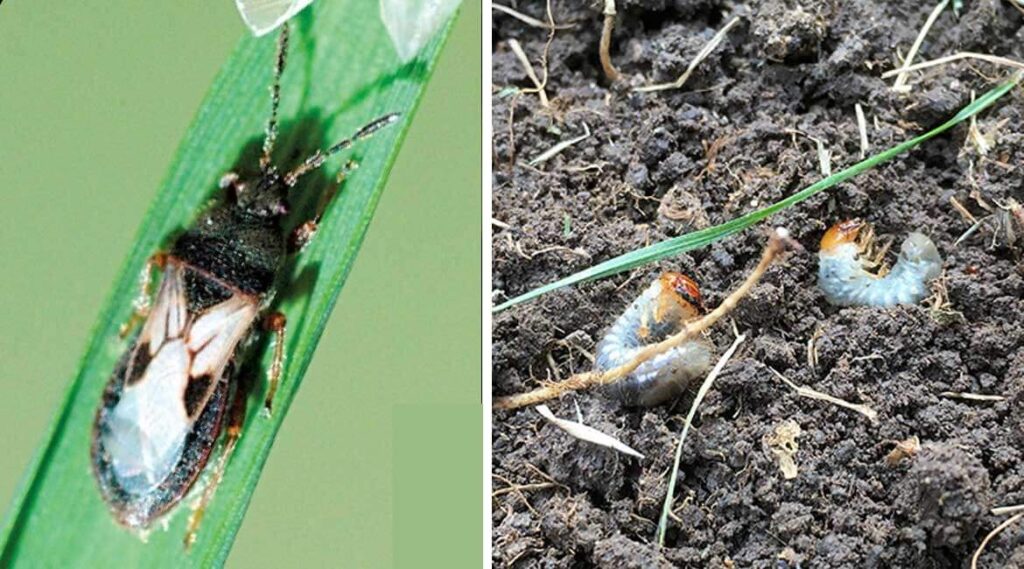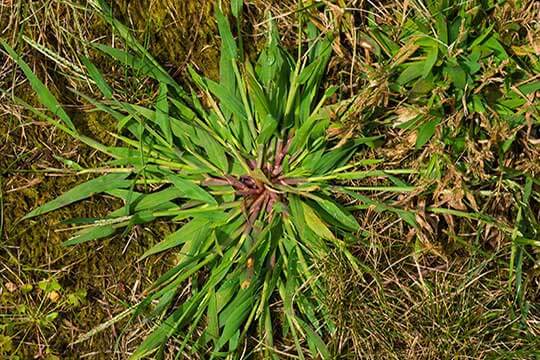What is the sod webworm?
Also known as the grass moth, the sod webworm is a small, beige-colored moth. When adult, the moths do not cause any damage to lawns. It is the larvae of these moths that can ravage a lawn in a very short time. To maintain a durable and healthy lawn, here’s how to identify them, treat them and prevent them from appearing.
How do you identify it ?
The first thing you need to know is that the larvae of the moth lives near the roots and feeds on the blades of grass. During an infestation, patches of grass will begin to turn brown. Look for patches where the grass is very dry. Look near the roots and if you see small white cylinders, which appear to be made of fine webbing, this is a bad sign. In the evening, you may also see caterpillars, which can be ¼ to ¾ of an inch long.
Finally, if you notice small butterflies flying over the grass at dusk or when you mow, it’s a sign of a sod webworm infestation.
No sign of webworms? Discover the cause of your lawn’s poor condition with our diagnostic tool.
How to treat it ?
Generally, grass turns yellow in August and September. Therefore, treatment should be applied as soon as the first signs appear in late summer or as a preventive measure in the spring.
Unlike other insect pests, damage caused by the sod webworm is rarely irreversible. Since the larvae live in the thatch and feed on the stems, the roots usually remain intact, especially if the treatment is done at the right time. This makes it easier to repair damaged patches.
How to prevent it ?
Since webworms thrive in hot, dry soil, providing an adequate water supply is desirable. If rainfall is insufficient during the summer, consider watering your lawn thoroughly at least once a week, where regulations allow. This will keep the soil moist throughout the season.
Another success factor in preventing a webworm infestation is maintaining a healthy lawn. The fertilization program that you have certainly subscribed to with your Nutrite Expert is essential to provide the nutrients that the lawn needs to help it resist insect damage.
If you think you have a problem with sod webworms, contact your Nutrite Expert now! They will know how to get rid of them effectively and prevent their appearance next year.




